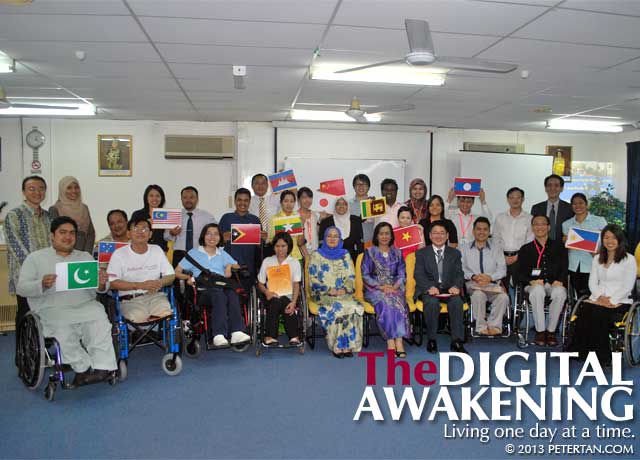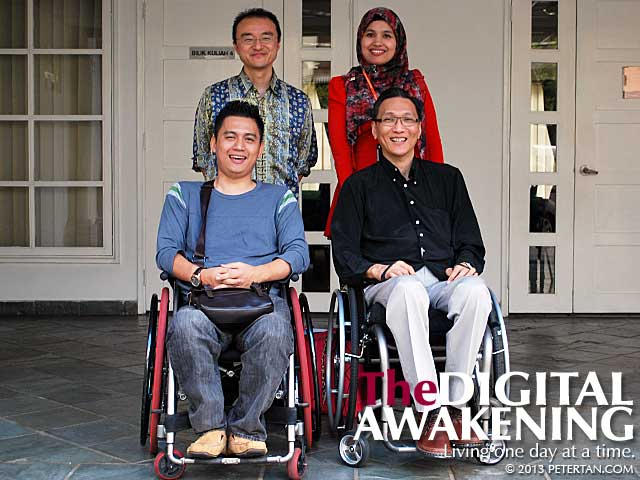The Japan International Cooperation Agency (JICA) and the Department of Social Welfare Malaysia organised a 2-week workshop on Disability Equality Training from 8th to 19th January. This workshop, facilitated by Dr. Kenji Kuno, Senior Advisor on Social Security and Disability for JICA, was the 2nd Regional Asia Pacific Training of Senior Trainers (TOST) and 3rd Regional Asia Pacific Training of Trainers (TOT) to be held in Malaysia.
Twenty participants from twelve countries in the Asia Pacific region, including five from Malaysia, underwent training on the understanding of disability and facilitation skills. The countries represented were Vietnam, Laos, Myanmar, Cambodia, Timor Leste, Pakistan, Sri Lanka, China, Philippines, Samoa and Japan. The TOST ran concurrently with two participants from Malaysia who also doubled up as co-facilitators of the workshop. They were Nurul Huda Zainal from the Department of Social Welfare Malaysia and Fariz Abdul Rani from JB Prosthetic and Rehab Supply in Sabah.
Although I was the co-facilitator supporting the learning of senior trainers and trainers, I learnt a lot from the participants and Dr. Kuno as well. The most empowering moment in the entire workshop was seeing the participants rewriting their life according to the Social Model of Disability. They were struck with the realisation that their impairments were not the cause of them being disabled. Rather, the hardships that they faced and marginalisation from society stemmed from attitudinal and environmental barriers.
It was a privilege to be part of the transformation of the participants into DET trainers. Their perspective of disability and themselves as disabled persons will never be the same again. Disability is more than what we see in a wheelchair user or a blind person. It is an issue that involves so many aspects of society and requires the involvement of all levels to resolve. All of them now have the knowledge and skills that they can put into practice to make their own respective societies more inclusive.
To date, the Project to Support Participation of Persons with Disabilities by JICA, which DET is part of, has produced 153 trainers from 18 countries across the Asia Pacific, Africa and Latin America. Even with so few trainers spread across several continents, attitudes towards disabled people have changed. The public and private sectors in these countries have engaged DET trainers to conduct workshops in their organisations to better understand disability issues and work together to resolve them.

Group photo after the conclusion of the 3rd Regional Asia Pacific Training of Trainers on Disability Equality Training 2013. Seated between the participants (L-R): Cik Nor Tipah Majin, Senior Principal Assistant Director of Persons with Disabilities Development Department, Dato’ Norani bt Hj Mohd Hashim, Director General of Department of Social Welfare Malaysia and Mr. Kunihiko Sato, Chief Representative of JICA Malaysia.

2nd Regional Asia Pacific Training of Senior Trainers on Disability Equality Training 2013.
Standing (L-R): Dr. Kenji Kuno (Facilitator) and Nurul Huda Zainal.
Seated: Fariz Abdul Rani and Peter Tan (Co-Facilitator).


